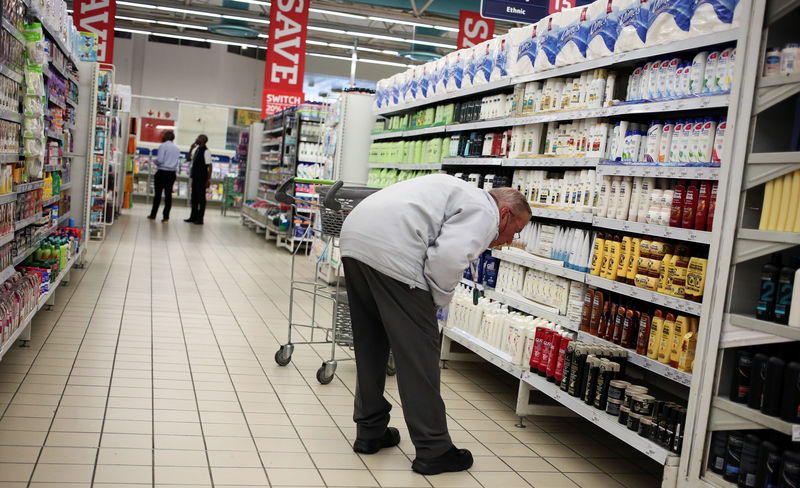
South Africa’s Consumer Inflation Rises to Highest in 10 Months in July
JOHANNESBURG (Reuters) – South Africa’s headline consumer inflation rose to its highest in ten months in July as the cost of transport and household goods increased, but some analysts said the central bank was unlikely to raise interest rates. The Reserve Bank held its benchmark rate for a fifth meeting in a row in July, […]

JOHANNESBURG (Reuters) – South Africa’s headline consumer inflation rose to its highest in ten months in July as the cost of transport and household goods increased, but some analysts said the central bank was unlikely to raise interest rates.

The Reserve Bank held its benchmark rate for a fifth meeting in a row in July, but warned it was ready to tighten policy despite the weak economy in response to rising rand-driven inflationary pressures and offshore volatility.
Headline consumer inflation quickened to 5.1 percent year-on-year in July from 4.6 percent in June, and rose to 0.8 percent from 0.4 percent on a monthly basis, Statistics South Africa said on Wednesday.
The figure was a touch above expectations of 5 percent annual increase, pushing the rand to 14.4400 from 14.3900, but analysts said investors and the central bank would be more concerned with core inflation than the headline figure.
The rand fell more than 10 percent last week to a 2-year low as the Turkish crisis turned investors off emerging markets.
The currency has since recovered as the yield offered by local assets, with benchmark bonds yielding around 9 percent, offering an attractive carry-trade.
Core inflation, which excludes the prices of food, non-alcoholic beverages, petrol and energy, rose to 4.3 percent year-on-year from 4.2 percent, while on a month-on-month basis it increased to 0.6 percent from 0.2 percent previously.
“The risk of higher rates has increased due to the weaker currency, but that is only going to start showing up in inflation in 12 to 18 months, so we don’t see the bank raising rates this year,” said economist at Nedbank Busisiwe Radebe.
Yasemin Engin, assistant economist at Capital Economics concurred: “Core inflation remained stable, and we think that the SARB will keep policy on hold this year.”
(Reporting by Mfuneko Toyana; Editing by James Macharia)
